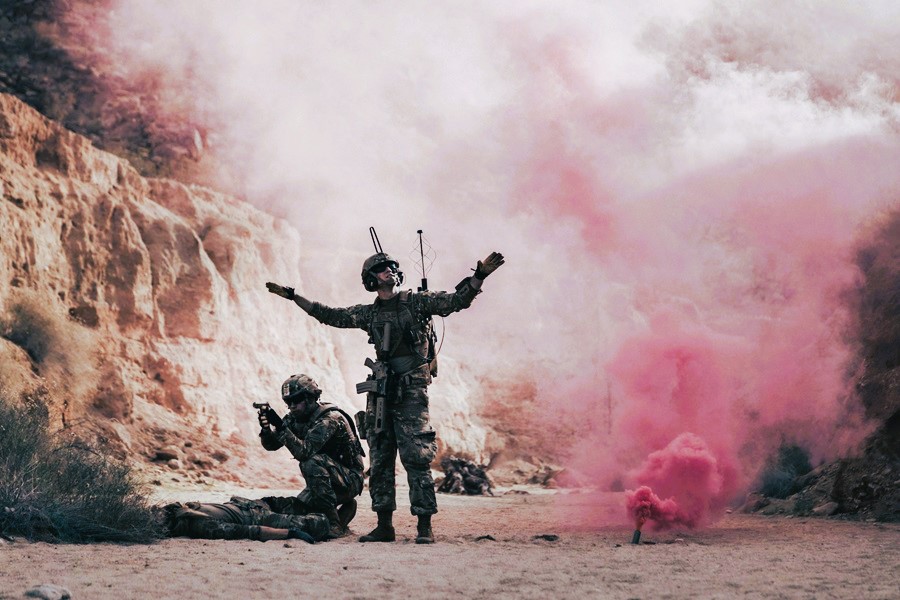Following one of the most turbulent geopolitical whirlwind years of recent times, a recurring theme that is rarely discussed is the flexibility of the “S” within the ever-present headline topic of “ESG.” The S of ESG is a loosely defined term, with a large number of sub-sectors contributing to the overarching theme of socially responsible, or socially aware, investment and business management.
On a McKinsey podcast episode from 2022, the definition of the S is further extended from a term that refers to the philosophies and behaviours demonstrated by company executives, to a letter that also requires “creating products that contribute positively to society.” This specific extension of the definition of being socially responsible, or morally sound, is where we have seen the most impressive moral gymnastics across the financial services industry.
One of the most common forms of negative screening (actively eliminating certain types of companies from your portfolio based on specific criteria) is based on controversial weapons exclusions. Whilst controversial weaponry, including the most barbaric forms of chemical and biological weaponry, is an area in which we see less moral gymnastics in the financial services industry, the more conventional weapons makers including Lockheed Martin, or BAE Systems, are ripe for the moral debate of what makes a company eligible to tick the S box.
Both aforementioned companies have seen dramatic growth in their share prices over the last two years, amidst dramatic global uncertainty highlighted by both the Russian invasion of Ukraine, and the tragic conflict taking place in the Middle East. These two conflicts have undoubtedly contributed to the flying outperformance of defence companies more widely, with the majority of commentators focusing on the simple narrative that a direct increase in demand for conventional weaponry from both Europe, the United States, and the Middle East, can mean nothing but good news for the shareholders of the best-positioned defence companies. Whilst this certainly rings true, commentary on defence sector outperformance has often failed to appreciate the impact of changing social values-based screening.
Negative screening often relies on the moral notion that a company, or specifically the products that a company produces, have a negative impact on society, and do not “contribute positively to society.” Following the Russian invasion of Ukraine, the world was reminded once again that it can be deemed socially acceptable, or even morally correct, to purchase, produce, and fund the development of weaponry used in warfare. At the point where the United States government began to directly supply weaponry, produced and manufactured by Lockheed Martin, or the United Kingdom with BAE Systems produced weaponry, suddenly the moral dilemma of screening such companies out of portfolios became a lot more complicated for the world’s financial institutions.
Had Lockheed Martin become a guiding light in the fight to ensure Ukraine’s sovereignty? Had BAE Systems become a knight in shining armour enabling the British support of the Ukrainian struggle?
In a world where trillions of dollars of assets are managed in passive index tracking funds, ETFs, and mutual funds, with countless ESG-enhanced offerings, the price impact of altering social values cannot be underestimated. ESG enhanced passive products frequently start with a conventional benchmark (S&P 500, FTSE 100) and then overlay the benchmark with specific negative screening criteria. When this criteria undoubtedly changed in February 2022, with all of the Western world’s major financial institutions unequivocally stating their support for Ukraine, how can we underestimate the impact of thousands of funds now suddenly having previously prohibited companies welcomed into their investible universe?
If your investible universe is based on a set of social or moral principles, there has to be an increased understanding that these values are volatile and subject to change, just as they are in the real-life society they have been extracted from. With volatility becoming increasingly familiar to recent entrants to financial markets, the flexibility of reportedly rigid moral principles in negative screening will be further fuel to the fire in the current macro climate. As the younger generation of investors increasingly invest with their social principles in mind, companies previously condemned to being deemed morally questionable will have the opportunity to capitalise on shifting geopolitical sentiment. Expect to see childhood villains become corporate heroes in the years to come.




